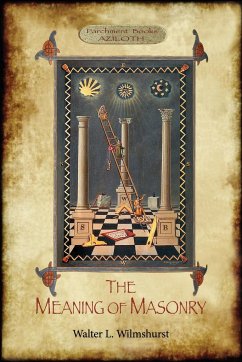"It is always understood that Free-Masons have a secret which they carefully conceal; but from every thing that can be collected from their own accounts of Masonry, their real secret is no other than their origin, which but few of them understand; and those who do, envelope it in mystery." T. Paine On the Origin of Free-Masonry, published posthumously in 1810, was regarded after the death of Thomas Paine as a missing chapter belonging to the unpublished third part of the Age of Reason. It presents a description of the Masonic ritual along with his theory that Freemasonry was a form of Sun worship. The text is followed by an article by W. L. Wilmshurts: Freemasonry In Relation To The Ancient Mysteries.
Hinweis: Dieser Artikel kann nur an eine deutsche Lieferadresse ausgeliefert werden.
Hinweis: Dieser Artikel kann nur an eine deutsche Lieferadresse ausgeliefert werden.








